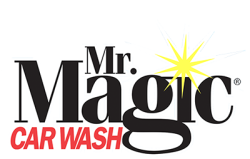How Does Road Salt Cause Rust?
The snow is here in Pittsburgh, and it is not going away anytime soon. Salt is all over the roads, and after a few days of snow, it is also on your car. However, you do not want to keep that salt on your car long. Salt can cause corrosion and rust to your car's body. How does this happen? This blog will explain how the salt makes keep us safe on the roads, but it does not help with your car's paint. You can learn more
We here in the northern states get exactly two things from combining cars and winter: good wintertime driving stories and rust. Both come courtesy of snow, but not directly; the former involves driving skills (or lack thereof) as a catalyst, while the latter involves road salt as a catalyst. The fact that road salt causes vehicles to rust out – sometimes after just a couple of winters – is something everybody knows, but the exact process isn’t quite as simple as steel plus salt equals rust.
Without dredging up too much of our long-forgotten high school chemistry classes, rust is the result of an electrochemical reaction combining iron and oxygen to form iron oxide. Iron and oxygen really like to get together in chemical reactions: The former readily gives up its electrons while the latter will take on electrons all day long. That’s why you rarely see naturally occurring pure iron – the oxygen in the air will eventually latch on to it and cause it to corrode, even in the driest of climates.
When water enters the picture, it merely steps up the process, in part by bringing more oxygen and carbon dioxide in contact with the metal, and in part by acting as an electrolyte – that is, an agent for electrolysis. However, pure water – straight H2O – doesn’t function all that well as an electrolyte; it just doesn’t have that many ions floating around in it to facilitate electrolysis (which is why you should use distilled water rather than tap water in your engine’s cooling system). What water really needs to get the iron oxide party started are some impurities, especially some with a few free-floating ions.
Enter road salt. Municipalities spread both salt and sand on the roads during the winter for different reasons: Sand provides traction, while salt both melts the ice and snow and prevents it from refreezing. Sodium chloride, the most common form of road salt, does so by dissolving into its constituent parts – one atom of sodium for every atom of chlorine, or, actually, one ion of sodium and one ion of chloride. The free-floating ions work to reduce the freezing point of water – in sodium chloride’s case, down to about 15 degrees Fahrenheit in real-world conditions. So when road salt does its job, it’s introducing a lot of free-floating ions into melting water on the road, just waiting for your tires to come along and kick up some ion-filled road spray into your wheel wells and other moisture-trapping crevices.
As a side note, sodium chloride isn’t the only road salt available, nor is it the most effective; it’s simply one of the cheapest. Other road salts, like calcium chloride and magnesium chloride, involve more complex molecules that distribute more ions when they dissolve in water, further lowering the freezing point of water. In turn, they’d also create more effective electrolytes than sodium chloride and thus prove even more devastating to your vehicle’s sheet metal.
A few other things happen along the way. Even without the salt-dissolved ions helping things along, the hydrogen set free in the initial rusting process actually creates a mild acid, which dissolves in the water and attacks the metal. Stray battery currents – as well as dissimilar metals – help along the electrolysis process, and plenty of other contaminants and impurities, get into the salt slurry to further acidify it.
Then once the rust starts, it works quickly. Iron oxide molecules take up more space than iron atoms, so they start to expand. Carbon dioxide in the water combines with the iron to create iron hydroxide, another form of rust that easily separates from the base metal. None of these processes stop unless all the corrosion is removed and the base metal is protected by some form of barrier.
